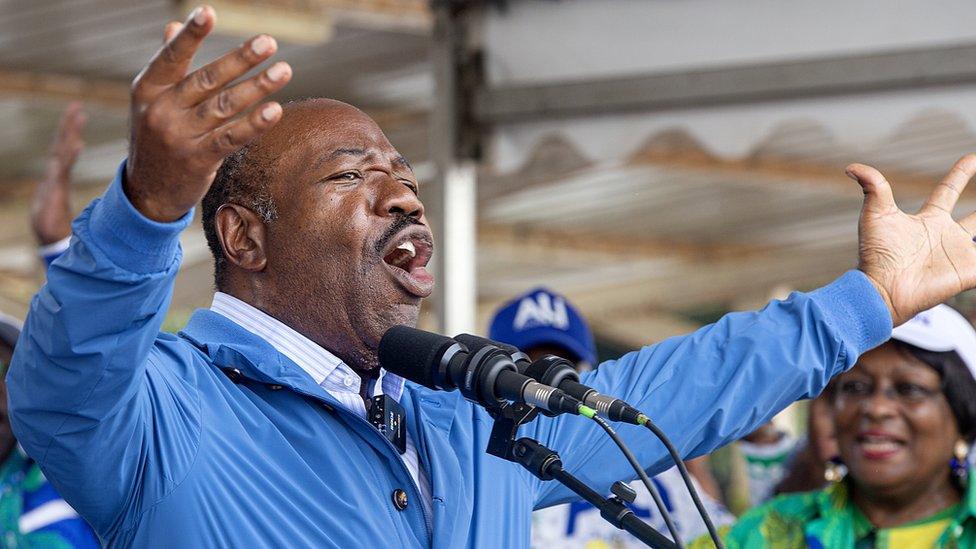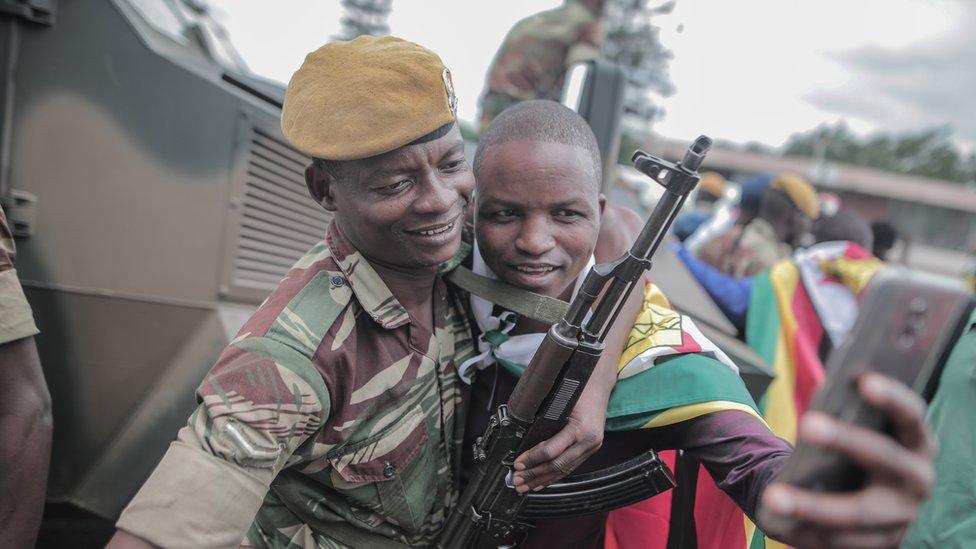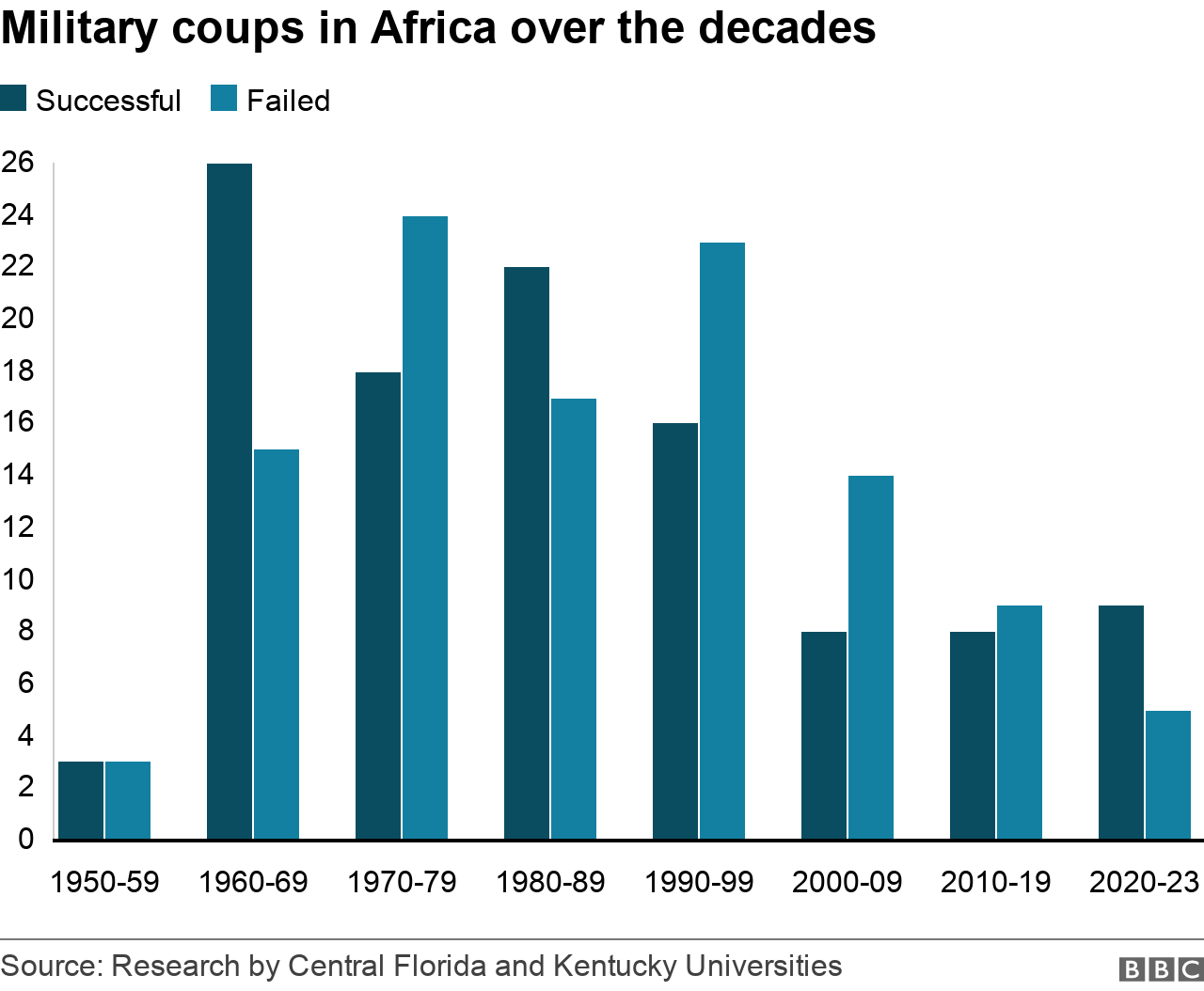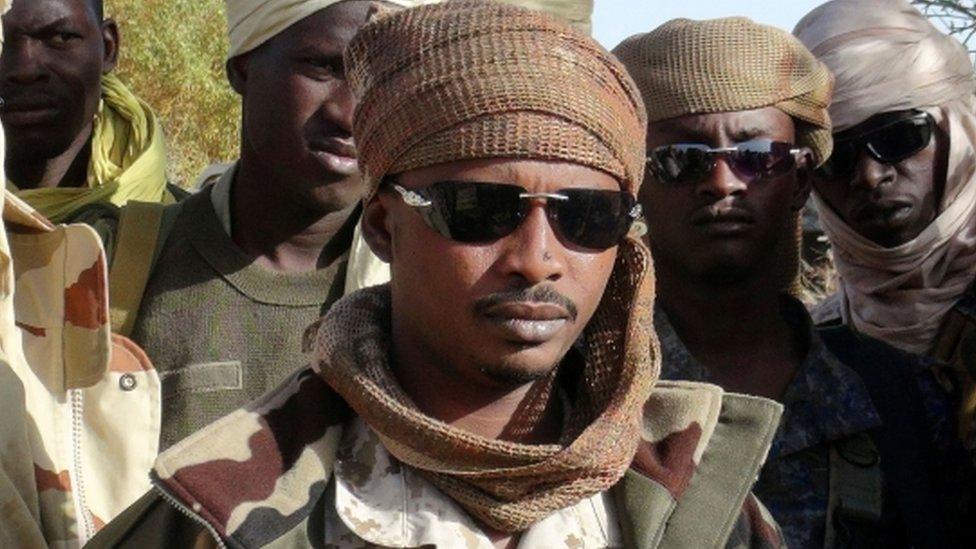Gabon coup: The latest in a series of military takeovers on the continent
- Published

Ali Bongo Ondimba and his father have ruled Gabon for over fifty years.
Military coups were a regular occurrence in some parts of Africa in the decades after independence. Now, after a period of relative democratic stability, there are indications they are on the rise again.
The takeover in Gabon is just the latest in a string of coups that have taken place in recent years, and comes just a month after soldiers took control in Niger.
There were two in Burkina Faso in 2022 as well as failed coup attempts in Guinea Bissau, The Gambia and the island nation of Sao Tome and Principe.
In 2021, there were six coup attempts in Africa, four of them successful.
Last year, a senior African Union official, Moussa Faki Mahamat, expressed concern, external about "the resurgence of unconstitutional changes of government".
When is a coup a coup?
A coup can be defined as an illegal and overt attempt by the military - or by other civilian officials - to unseat sitting leaders.
A study by two US researchers, Jonathan Powell and Clayton Thyne, has identified over 200 such attempts in Africa since the 1950s. About half of these have been successful.

The army in Zimbabwe intervened against President Mugabe in 2017 but denied it was a coup
Sometimes, those taking part in such an intervention deny it's a coup.
In 2017 in Zimbabwe, a military takeover brought Robert Mugabe's 37-year rule to and end. But one of the leaders, Maj Gen Sibusiso Moyo, appeared on television at the time, flatly denying it was a military takeover.
In April 2021 after the death of the Chadian leader, Idriss Déby, the army installed his son as interim president, leading a transitional military council. His opponents called it a "dynastic coup".
"Coup leaders almost invariably deny their action was a coup in an effort to appear legitimate," says Jonathan Powell.
How frequent are coups in Africa?
The overall number of coup attempts in Africa remained fairly consistent at an average of around four a year between 1960 and 2000.
Jonathan Powell says this is not surprising, given the instability many countries experienced in the years after independence.
"African countries have had conditions common for coups, like poverty and poor economic performance. When a country has one coup, that's often a harbinger of more coups."

In the years after 2000, there was a noticeable decline in military interventions.
It's only in the last couple of years that coups have become more prevalent.
In 2020, there was just one coup (in Mali).
Then in 2021 five countries experienced military interventions (Chad, Mali, Guinea, Sudan and Niger).
In 2022, there were also five attempts, with two - both in Burkina Faso - succeeding.

Mahamat Idriss Déby Itno succeeded his father as Chadian leader in April 2021
Ndubuisi Christian Ani from the University of KwaZulu-Natal says popular uprisings against long-serving dictators have provided an opportunity for the return of coups in Africa.
"While popular uprisings are legitimate and people-led, success is often determined by the decisions taken by the military," he says.
Which countries have had the most coups?
Sudan has had the most coups and attempted takeovers amounting to 17 - six of them successful.
In 2019, long-serving leader Omar al-Bashir was removed from power following months of protests. Bashir himself had taken over in a military coup in 1989.
Burkina Faso in West Africa, has had the most successful coups, with nine takeovers and one failed coup.
Nigeria had a reputation for military coups following independence with eight between January 1966 and the takeover by Gen Sani Abacha in 1993. However, since 1999 transfers of power in Africa's most populous nation have been by democratic election.

Burundi's history has been marked by eleven separate coups, mostly driven by the tensions between the Hutu and Tutsi communities.
Sierra Leone experienced three coups between 1967 and 1968, and another one in 1971. Between 1992 and 1997, it experienced five further coup attempts.
Ghana has also had its share of military coups, with eight in two decades. The first was in 1966, when Kwame Nkrumah was removed from power, and in the following year there was an unsuccessful attempt by junior army officers.
In 2021, the UN Secretary-General António Guterres said that "military coups are back," adding that "geo-political divisions are undermining international co-operation and...a sense of impunity is taking hold," he said.
Overall, Africa has experienced more coups than any other continent. Of the 18 coups recorded globally since 2017, all but one - Myanmar in 2021 - have been in Africa.